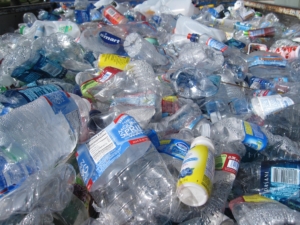A New Vocabulary for an Increasingly Polluted World
 SERC researcher, Linsey Haram, has spearheaded an effort to standardize the language used to discuss the increasingly widespread plastic pollution in our environment. The development of the use of plastics in our society has happened so rapidly that many related phenomena have managed to escape any agreed-upon terminology. The lack of a universal language to discuss these novel ideas presents a unique barrier to coordination on their study. Haram and three others have now released a report listing 12 new terms that they believe will help unify efforts to examine the way plastic pollution affects our environment.
SERC researcher, Linsey Haram, has spearheaded an effort to standardize the language used to discuss the increasingly widespread plastic pollution in our environment. The development of the use of plastics in our society has happened so rapidly that many related phenomena have managed to escape any agreed-upon terminology. The lack of a universal language to discuss these novel ideas presents a unique barrier to coordination on their study. Haram and three others have now released a report listing 12 new terms that they believe will help unify efforts to examine the way plastic pollution affects our environment.
Opportunities to Advance Science While Practicing Social Distancing

SERC marine biologist Brianna Tracy holds a plate with marine life pulled from a dock in San Francisco. Credit: Kristen Minogue/SERC
While the world is quarantining to slow the spread of COVID-19, researchers from the Smithsonian Environmental Research Center (SERC) have relaunched a citizen science project that the public can help with while staying at home. Through the program, called Invader ID, volunteers analyze digital photos of underwater sampling tiles and identify the marine invertebrates living on them. This data will help researchers better understand how invasive species impact other species populations and change coastal environments over time. The relaunched project is focusing on tiles from Alaska and Panama, and with the help of citizen scientist volunteers, the SERC researchers aim to make 18,000 new identifications.
